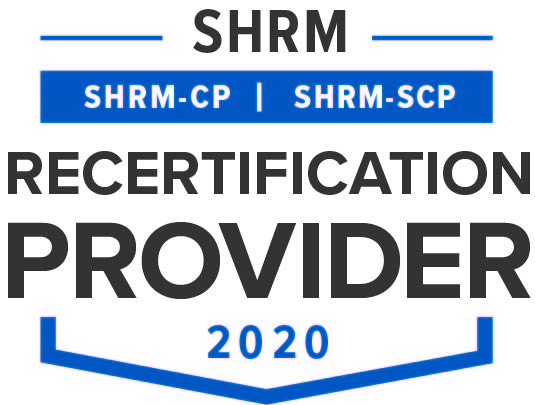Are the new DOL opinion letters like noses?
Eyes and Ears on the FLSA – U.S. Department of Labor Issues New Opinion Letters and Schedules Public Listening Sessions (US)
By Jill Kirila and Shennan Harris
On August 28, 2018, the Wage and Hour Division of the United States Department of Labor (“WHD”) issued four new opinion letters interpreting various aspects of the federal Fair Labor Standards Act (“FLSA”). In addition, the WHD has announced plans to analyze and consider changes to the FLSA’s white collar overtime exemption regulations applicable to executive, administrative, professional, and outside sales employees. To support this effort, the WHD has scheduled five public listening sessions in various locations across the country (a list of which you can find here), which it invites the public to attend and provide comment. The key questions to be addressed at these sessions surround the pros and cons of adjusting the salary basis – the salary level employees must meet in order to be deemed exempt under the white collar overtime exemptions. We will be sending representatives and encourage you to contact us with any questions or feedback you would like us to raise at these sessions.
Regarding the opinion letters, as you may recall from our prior blog posts (for example, here and here), the WHD resumed issuing opinion letters in mid-2017. Opinion letters are official written interpretations of the FLSA, as those laws apply in specific factual situations. Although the opinion letter topics are generally brought to the WHD by a specific person or entity, as you will see from below, many of the situations they present have broader applicability to a range of employers. Keeping abreast of the WHD’s opinions can help employers avoid the pitfalls embedded in the nuances of the laws it enforces. Below is a summary of these new opinion letters, and a link their text:
- Voluntary employer-sponsored wellness events not compensable time under the FLSA. Employees who voluntarily participate in employer-sponsored wellness activities, such as biometric screening, health and gym classes, or benefits fairs that are designed to lower an individual employee’s health insurance policy premiums and provide other benefits to employees that does not relate to the performance of their job, and from which the employer obtains no financial benefit, predominately benefit the employee, therefore they are not compensable work time under the FLSA.
- Non-profit professional credentialing organization graders are “volunteers” under the FLSA. A non-profit organization who administers professional exams necessary for professional credentialing selects a group of its credentialed members to serve as exam graders for a period of 1 or 2 weeks, whereby they travel to testing locations to perform these services. The organization pays the direct expenses related to the graders’ travel. Graders report they perform the services willingly in the effort to give back to their professional community and to the credentialing organization. Under the FLSA, individuals who provide services to non-profit organizations may be properly classified as volunteers if they offer their services willingly without any expectation of compensation, free from any coercion or undue pressure. Under the circumstances presented by the credentialing organization employer, exam graders meet this standard and can be unpaid volunteers.
- Internet payment software platform sales employees may be exempt from FLSA overtime. Employees may not be entitled to overtime if they 1) work in retail or service establishment, 2) earn a regular rate of pay that is more than 1 Ѕ times the applicable minimum hourly wage in a given workweek in which they work overtime, and 3) derive more than half of their earnings from sales commissions. This is known as the “retail and service establishment” exemption to the FLSA’s overtime provisions. The WHD found that an employer whose business is selling internet payment software platforms to retailers and others who sell products online, was considered a “retail sales entity” because it sold its platform directly to the user, in small quantities, for the user’s own use in business, rather than re-sale (such as wholesale sales). This was not changed by the fact that the employer’s sales are made predominately online. Accordingly, the organization’s employees who meet the earnings requirements above may be exempt from overtime.
- Movie theater overtime exemption applies to in-theater-restaurants. The FLSA exempts from overtime all employees of establishments that are primarily engaged in the exhibition of motion pictures (the WHD defines “primarily engaged” to mean at least 50% of the available operation time is spent showing movies). The exemption applies to all employees of a qualified establishment, regardless of the work they perform. This recent opinion letter clarifies that movie theaters with in-theater dining, and even some with onsite, full-service restaurants, may qualify for the movie theater exemption if the food service is “functionally integrated” with the theater operations. Based on the facts presented in the letter, movie theaters with in-theater dining will qualify for this exemption if the food service and theater operations share common: 1) physical premises without a distinct barrier or separation; 2) business, financial, and other record keeping, such as entity name, taxes, and payroll; and 3) employees, and their primary source of revenue is showing movies.
This blog was written by Jill Kirila and Shennan Harris at Squire Patton Boggs who are co-authors of our "Wages and Hours - An Employer's Guide". You can find the original blog post and their Employment Law Worldview on their website.


